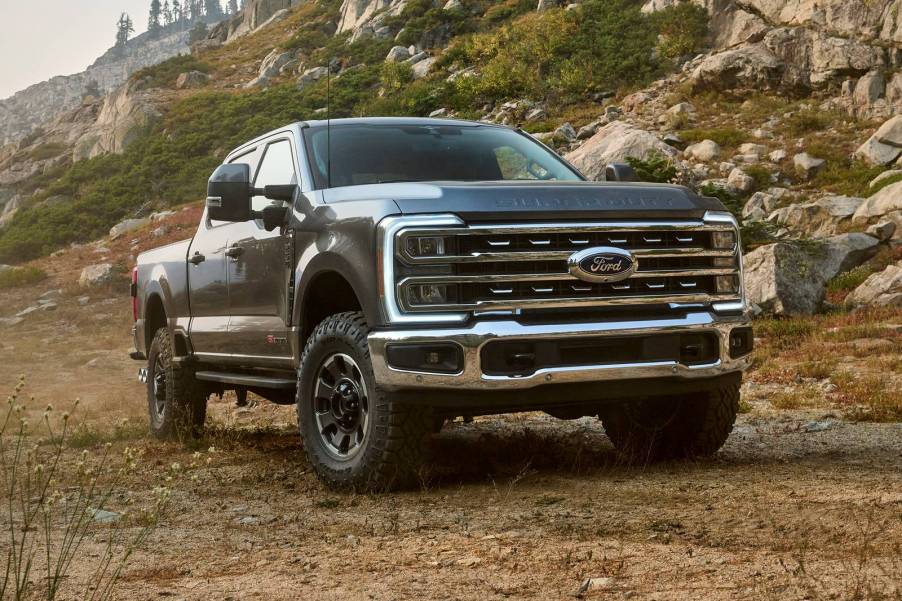
Ford Pauses on EVs to Invest Billions in Super Duty Trucks
Ford is making a massive change based on demand. Instead of continuing to invent and develop electric vehicles, it’s expanding Super Duty truck production. People seem to want massive trucks instead of smaller EVs.
Ford invests in Super Duty trucks instead of EVs
Initially, the Oakville Assembly plant in Ontario Canada was supposed to be for electric vehicles. But instead of being turned into an EV hub, it will be expanded to increase production of Ford Super Duty trucks.
Fors is investing $3 billion into expanding the F-Series Super Duty lineup. About $2.3 billion will go to the Oakville Assembly complex and the rest will go to factories in America and Canada that support F-Series trucks.
Also, a third North American assembly plant will be added. It will have the capacity for 100,000 big trucks. Plus, it will provide plenty of new jobs.
The Canadian plant is on track to come online in about two years with a 100,000-vehicle capacity. Plus, while this decision primarily benefits the Ford Pro Commercial business, it will pave the way for future multi-energy tech.
This tracks as Ford has mentioned building a fully electric Super Duty truck. However, the Super Duty hybrid variants will probably arrive first.

The Kentucky and Ohio plants are already running at full capacity and Ford is still struggling to meet Heavy Duty demand. But during the first half of the year, the Kentucky and Ohio plants cranked out 200,000 trucks.
Ford CEO, Jim Farley shared that Ford Super Duty is a vital tool for people and their businesses around the world, and even with the Kentucky and Ohio plants running full, it can’t meet demand.
Ford Chief Operating Officer, Kumar Galhatra shared that this plan will have a fast payback. Unlike electric vehicles due to battery size and costs.
A battery to power an EV super-duty model would weigh more than a Honda Civic. Plus, Ford has lost $100,000 on every electric vehicle sold.
Big trucks are still the largest source of income for Ford. But the F-150 has been struggling against declining sales.
Some suggest that the market is changing and people want smaller, more affordable, fuel-efficient vehicles. But perhaps inflation will be under control by the time the Canadian plant comes online.



